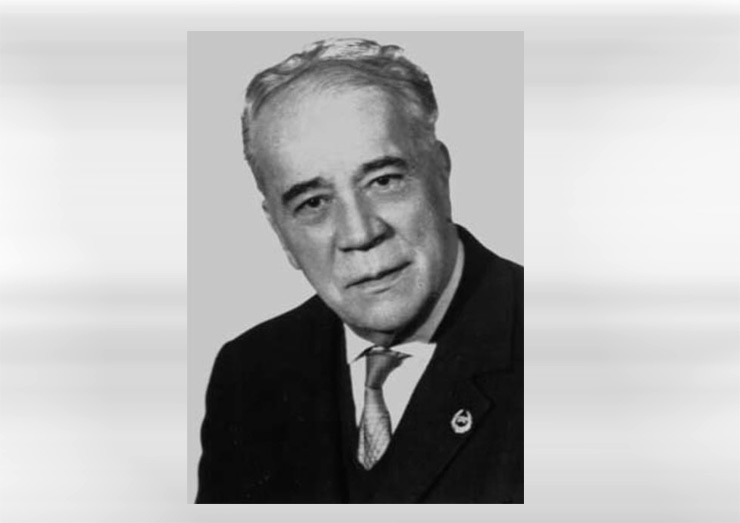Remembering founding fathers: Horia Hulubei
News, 15 November 2021
On 15 November, the 125th anniversary of the birth of the famous Romanian scientist Horia Hulubei (1896 – 1972) is celebrated. Doctor of Science in Physics, Professor, Academician of the Romanian Academy of Sciences, Corresponding Member of the French Academy of Sciences and of the Portuguese Academy of Sciences Horia Hulubei played an important role in the foundation of the Joint Institute for Nuclear Research and the development of international cooperation in it as Plenipotentiary Representative of the Government of Romania to JINR and member of the JINR Scientific Council.

Marking the contribution of H. Hulubei to basic science, the National Institute for R&D in Physics and Nuclear Engineering (IFIN-HH) in Romania was named after him, as well as one of the alleys at the DLNP JINR site.
Interesting fact: his biography is connected to the organization of not only science but also aviation. His study at the Alexandru Ioan Cuza University of Iaşi was interrupted by Romania’s entry into World War I. Horia Hulubei took part in the battles, first as a second lieutenant of the infantry and then as a military pilot of the French Air Force. After being seriously injured, he was awarded the Legion of Honour and worked in civil aviation facilitating the launch of Romanian air traffic.
In 1922, he resumed his study and since then remained faithful to science, holding numerous managing positions. In addition to basic research in laboratories, H. Hulubei was an outstanding organizer of science, giving author courses of lectures as Professor at technical universities in Romania. With his active participation, national scientific institutes and physics schools at universities were established.
Horia Hulubei was a student of a Nobel Laureate Jean Perrin, under whose supervision he defended his Doctoral thesis, with Marie Curie chairing the Doctoral Commission. H. Hulubei worked as Research Director at Perrin’s laboratory. He worked in France for many years – this experience allowed him, together with his colleagues, to establish and develop the first national laboratories of atomic and nuclear physics in Romania.
In 1941 – 1944, he was the Rector of the University of Bucharest, and a few years later he became founder and the first Director of the Institute of Atomic Physics (IFA) in Bucharest, Romania. He also established the first laboratory in Romania for research on the structure of matter. In 1947 – 1948, he was the Vice-President of the Romanian Academy of Sciences.
H. Hulubei contributed to the basic research, namely to the development of X-ray spectroscopy. He has gained worldwide recognition due to outstanding results in various fields of physics, including the Raman (combinational) scattering effect, Compton scattering, atomic and nuclear physics.